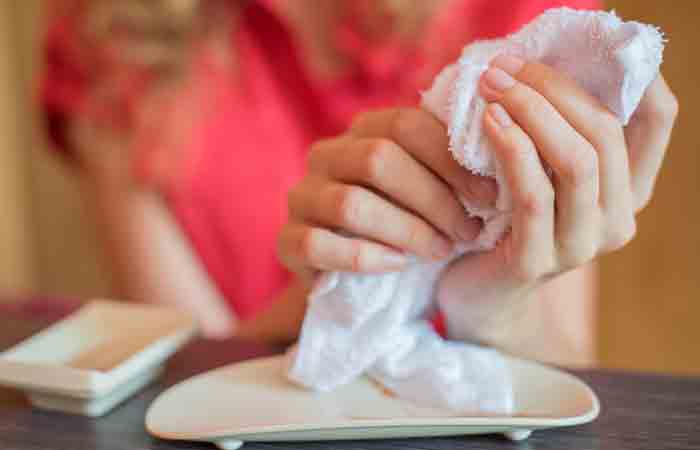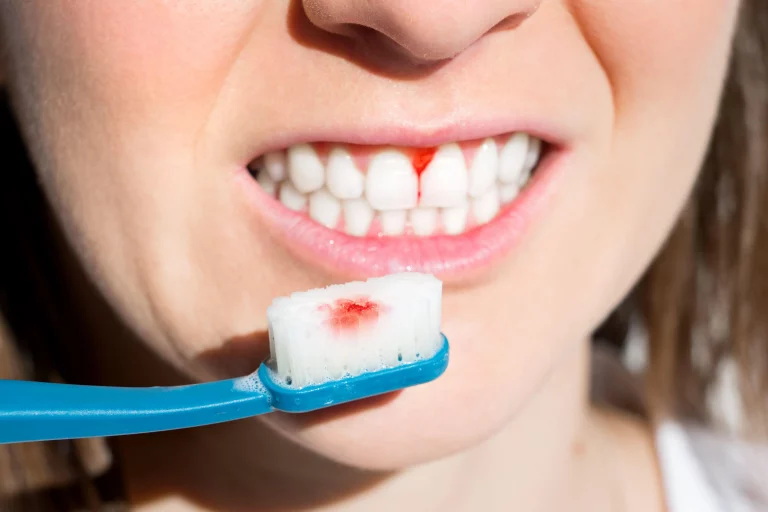How to Drain Ear Sinus Fluid: Effective Techniques and Home Remedies
Excess fluid buildup in the ear sinus can be uncomfortable and lead to various symptoms like ear pain, pressure, and reduced hearing. It’s important to address this issue promptly to prevent further complications.
In this article, we will discuss effective techniques and home remedies to drain ear sinus fluid, providing you with the relief you seek. Let’s dive in!
1. Nasal Irrigation

Nasal irrigation is a popular method to relieve sinus congestion and drain excess fluid from the ear. Here’s how you can perform it:
Step 1: Prepare a saline solution by mixing 1 teaspoon of salt and 1 cup of warm water.
Step 2: Fill a neti pot or a bulb syringe with the saline solution.
Step 3: Tilt your head sideways over a sink and gently pour the saline solution into one nostril while breathing through your mouth.
Step 4: Allow the saline solution to flow through your nasal passages and out of the other nostril.
Step 5: Repeat on the other side.
Step 6: This process helps to flush out the excess fluid and relieve sinus pressure, promoting drainage.
2. Steam Inhalation

Steam inhalation is another effective method to clear the sinuses and facilitate drainage. Follow these steps:
Step 1: Boil water in a pot and remove it from heat.
Step 2: Place a towel over your head, creating a tent-like structure, and lean over the pot.
Step 3: Inhale the steam slowly and deeply through your nose for about 5-10 minutes.
Step 4: The steam helps to thin the mucus and open up the blocked sinus passages, allowing the fluid to drain.
3. Warm Compress

A warm compress can provide relief by reducing inflammation and promoting sinus drainage. Here’s how to use it:
Step 1: Soak a clean towel in warm water.
Step 2: Wring out the excess water and place the warm towel over the affected ear.
Step 3: Leave it on for 5-10 minutes.
Step 4: The warmth helps to soothe the ear, alleviate pain, and encourage fluid drainage.
4. Nasal Decongestants
Over-the-counter nasal decongestant sprays or drops can help relieve congestion and facilitate fluid drainage. However, it’s essential to use them according to the instructions and avoid prolonged use to prevent rebound congestion.
Home Remedies for Fluid in The Ear
Several natural remedies can provide relief from ear sinus fluid buildup or fluid in the ear. Some examples include:
1. Eucalyptus Oil
The inhalation of eucalyptus oil can help relieve congestion and promote fluid in the ear drainage. Add a few drops of eucalyptus oil to a bowl of hot water, cover your head with a towel, and inhale the steam for 10-15 minutes. The steam will help clear the Eustachian tubes and encourage fluid in the ear to drain.
2. Warm Salt Compress and Water Gargle
A warm salt compress can help reduce inflammation and promote fluid drainage. Heat a cup of salt in a pan or microwave, pour it into a clean sock, and seal the opening. Place the warm salt compress against the affected ear for 10-15 minutes.
To gargle, Mix 1 teaspoon of salt in warm water, gargle, and spit it out to reduce inflammation in the throat and nasal passages, promoting drainage.
3. Apple Cider Vinegar
Apple cider vinegar’s antibacterial properties can help combat infection and alleviate fluid in the ear. Mix equal parts of apple cider vinegar and water, soak a cotton ball in the solution, and gently place it at the ear opening for a few minutes. Repeat a few times a day.
Using another potent method, you can also mix 1-2 tablespoons of apple cider vinegar in a glass of warm water and drink it to alleviate sinus congestion and promote fluid drainage.
4. Elevating the Head
Elevating your head while sleeping or resting can help promote sinus fluid drainage. By propping up your head with an extra pillow or using a bed wedge, you encourage the fluid to flow downward and prevent it from pooling in the sinuses.
5. Hydration
Staying well-hydrated is crucial for thinning mucus and promoting healthy sinus function. Drink plenty of water throughout the day to keep your body hydrated and help prevent the fluid from becoming thick and sticky, which can hinder drainage. Thus, staying hydrated can assist in reducing congestion and facilitating the natural drainage of fluid from the ears.
6. Avoiding Irritants
Certain environmental irritants can worsen sinus congestion and fluid buildup. Minimize exposure to cigarette smoke, allergens, strong chemical odors, and other irritants that can trigger inflammation and hinder the proper functioning of the sinuses.
7. Facial Massage
Gentle facial massage techniques can stimulate the sinuses and promote drainage. Using your fingertips, apply gentle pressure in a circular motion on the areas around your nose, cheeks, and temples. This massage can help relieve congestion, open up the sinus passages, and encourage fluid drainage.
8. Use of Nasal Sprays
Saline nasal sprays or nasal irrigation solutions help clear the sinuses facilitating fluid drainage. They moisturize the nasal passages, relieve congestion, and promote healthy mucus flow. Follow the instructions provided with the nasal spray or consult a healthcare professional for guidance on the proper use of nasal sprays.
9. Warm Compress
Applying a warm compress to the affected ear can help relieve pain and encourage fluid drainage. Simply soak a clean cloth in warm water, wring out the excess moisture, and gently place it against the ear for 5-10 minutes. Repeat this remedy a few times a day for relief.
10. Valsalva Maneuver
The Valsalva maneuver involves gently blowing out while pinching your nostrils and keeping your mouth closed. This technique helps equalize pressure in the ears and can assist in draining the fluid. Perform the maneuver gently to avoid excessive pressure.
11. Steam Inhalation
Inhaling steam can help open up the Eustachian tubes, promoting fluid drainage from the ear. Boil water, transfer it to a bowl, place a towel over your head to create a tent, and inhale the steam for 10-15 minutes. Be cautious not to get too close to the hot water to avoid burns.
12. Garlic Oil
Garlic possesses natural antibacterial and antiviral properties that can aid in relieving fluid in the ear. Warm a few drops of garlic oil and gently apply it to the affected ear using a dropper. Allow it to sit for a few minutes before tilting your head to drain the fluid.
13. Onion Poultice
Onions have antimicrobial properties and can help reduce inflammation. Create an onion poultice by heating a sliced onion in the oven, wrapping it in a clean cloth, and placing it over the affected ear. Leave it on for 10-15 minutes to facilitate fluid drainage.
14. Mullein Oil
Mullein oil possesses soothing and anti-inflammatory properties that can assist in alleviating ear congestion. Warm a few drops of mullein oil and carefully apply it to the affected ear. Gently massage the area to aid in fluid drainage.
15. Olive Oil
Olive oil can help soften earwax and facilitate the removal of fluid trapped in the ear. Warm a small amount of olive oil and use a dropper to place a few drops into the ear canal. Allow it to sit for a few minutes before tilting your head to drain the fluid.
16. Breast Milk
For infants and young children, breast milk can be a natural remedy to relieve fluid in the ear. Using a dropper, place a few drops of breast milk into the affected ear. Breast milk’s antimicrobial properties may aid in reducing inflammation and promoting fluid drainage.
17. Herbal Tea
Certain herbal teas, such as chamomile or peppermint, can have soothing and anti-inflammatory properties. Prepare a cup of herbal tea according to the instructions on the packaging. Allow it to cool down until it’s warm, but not hot. Sip on the tea while it’s still warm to help reduce inflammation and promote fluid drainage.
18. Warm Garlic and Sesame Oil
Combining garlic and sesame oil creates a potent remedy for fluid in the ear. Heat a mixture of minced garlic cloves and sesame oil in a small saucepan until warm. Let it cool slightly, then strain the oil. Using a dropper, place a few drops into the affected ear and allow it to sit for a few minutes before draining.
19. Chewing Gum or Yawning
Chewing gum or yawning can help open up the Eustachian tubes and equalize pressure in the ears. By stimulating the muscles involved in these actions, you can encourage fluid to drain naturally from the ears.
20. Seeking Medical Advice
Finally, seek medical advice from a certified medical practitioner if the fluid buildup in your ear sinuses persists, becomes recurrent, or is accompanied by severe pain, hearing loss, or other concerning symptoms. A healthcare professional, such as an otolaryngologist (ear, nose, and throat specialist), can evaluate your condition, provide a proper diagnosis, and recommend further treatment options if necessary.
Bottom Line
Remember, while these techniques and home remedies can be effective for mild to moderate cases, it’s important to consult a healthcare professional if your symptoms persist or worsen. They can provide a personalized assessment and recommend appropriate treatment based on your specific situation. Stay Healthy!





